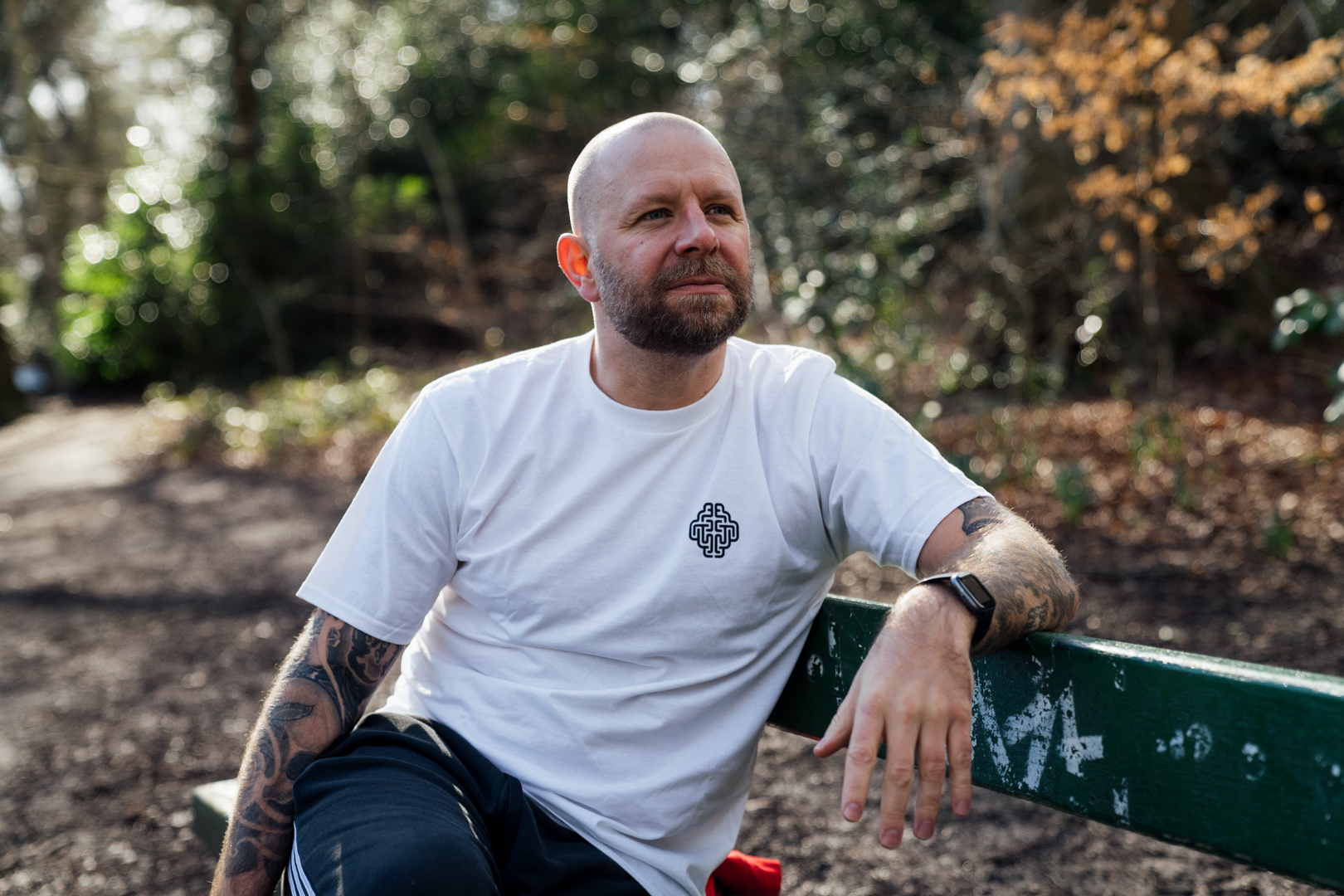BY Magnus Davies
EXPLORING VULNERABILITY WITH EVOLVE
This week Evolve members had a zoom call with Mantality’s counsellor Jon Bell. Evolve teammates get access to these seminar-like calls every month.
The theme of this month’s call was vulnerability and authenticity. Having researched the subject of vulnerability for the last month this is what I’ve learned.
- Do Vulnerability or vulnerability will do you. (it will destroy you emotionally)
- Healthy Vulnerability has a time, a place and a carefully selected pair of ears.
- Showing Vulnerability is a risk.
- Sometimes invulnerability is the best course of action.
- We admire vulnerability in other people, but dislike it in ourselves.
- Vulnerability is not a weakness (despite the thesaurus’ conviction that it is)

Brene Brown: “Do vulnerability or vulnerability will do you”.
The act of speaking your truth and sharing intimate details with people that you trust is essential to maintaining our mental wellbeing.
When we decide to bottle up our thoughts and feelings, we end up releasing excessive amounts of helium into the balloon. The balloon being our psyche.
We lose a sense of perspective on our experience and start to feel increasing amounts of shame and anxiety.
The act of speaking to a friend or therapist about these negative thoughts and feelings helps unload the mental baggage that can become increasingly heavy over time.
Showing vulnerability is not only integral to maintaining a healthy mental state, it’s how we build any meaningful relationships.
Showing Vulnerability is how we strengthen our relationships. When we open up to a friend or a family member and they listen and understand you, your bond is strengthened. And if they reciprocate the act of vulnerability then the bond becomes titanium.
There is a time and a place for Vulnerability
The main lesson I took from researching this subject of Vulnerability is that healthy Vulnerability has a time and a place.
We all have a friend on Facebook who shares the most intimate and private details of their life. It might be oversharing about the toxic relationship that they’re in or letting people know that their cat is ill. Either way sharing this information to hundreds of people on their Newsfeed is not true vulnerability, it is exposure.
The reason exposure is unhealthy is because your personal information is valuable. It is our own currency. It is not an understatement to say sharing your vulnerabilities is a privilege to the recipient.
If we share ‘our precious truth’ with all our ‘friends’ on Facebook we end up devaluing it.

Healthy Vulnerability is the road to Authenticity
“Being real doesn’t mean flaunting the details of your private life. Rather sharing your story with only a select few is wise, not closed off. Healthy vulnerability recognises when to share and when to remain silent”- Brene Brown.
Knowing when to share and when to remain silent, in the words of Brene Brown, is the road to authenticity.
It’s important that we have a good ‘vulnerability radar’. Our radar ensures that we can protect our privacy and share our truth to those who deserve to know it.
Authenticity is sharing your irrefutable truth with those that you trust. It is you saying ‘this is who I am and if you don’t like it that’s your problem’.
People pleasing is the enemy of authenticity
I think we’d be lying if we said we haven’t compromised our values to fit-in in the past. Humans in general have a proclivity to compromise their values because we value social belonging over any other value.
In this sense, embracing your authentic self is a risk because there is a risk that practicing vulnerability could lead to rejection or at worst isolation.
However, embracing our real selves is the only way forward.
From my experience when I stepped in my authentic self and I shared ‘my truth’ the right people stayed and the wrong people left.
Living a life based on a lie or pretending to be someone you’re not is not sustainable. The truth eventually surfaces in the form of breakdowns of marriage, friendships and mental health problems.
Sometimes you have to be invulnerable
I recently listened to Mantality’s podcast episode (#062) with Stevie talking to Jon Bell. In the podcast, Jon talks about how the environment he grew up in was not an environment that facilitated vulnerable talk. Growing up playing Rugby League in a working-class area was a place where you could not afford to show any emotions. He had to in his own words ‘get on with it’.
There is no place to express how you’re feeling when you’re having to bite down on your gumshield and commit to a tackle.
Jon and Stevie discussed how speaking to people about any emotional struggles was a no go area in Rugby because in a sport where the mindset is “we are going to war”, there was no time or desire for any talk of how you are feeling. There was a job to do and the job had to get done however you were feeling.

Vulnerability is not a weakness
If you type in ‘vulnerability’ in the thesaurus, one of the synonyms that appear is ‘weak’. This is indicative of the problem we have in our society. Men in particular are programmed to perceive displays of vulnerability as a fundamental weakness.
Humans are social animals and need social support. It is essential for our emotional regulation. We need people that we can confide in. People we can talk to. People that can help us offload any feelings of stress or confusion.
Some people have family or friends that pass their ‘vulnerability radar’ but choose not to out of an age-old attitude that to be a man is ‘to keep it to themselves’.
From my perspective, much of men’s inability to practice vulnerability does not come from having no one to speak to. It comes from trying to look invincible and infallible.
Maybe there was a time when they showed vulnerability to a family member only to get a hostile response. Or maybe men have merely internalised the toxic attitudes instilled by our society and culture.
But the act of showing vulnerability is not a sign of weakness, it’s quite the opposite. Vulnerability requires courage. It requires an individual to wrestle their fears and doubt, and open up anyway. Not practising vulnerability is a true sign of weakness because you usurp any discomfort under the guise that ‘it doesn’t affect you’. Being vulnerable is owning your insecurity and continuing to go forward in spite of your fear.
In the words of Brene Brown, Do vulnerability or it will do you.

